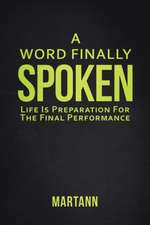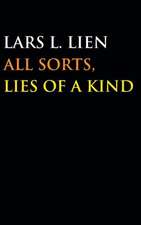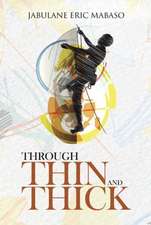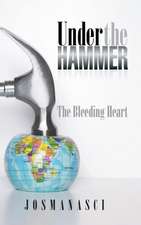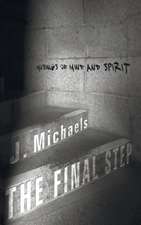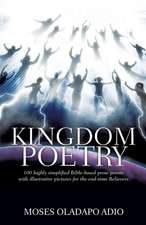The Sonnets and Other Poems: Volume 1766
Autor William Shakespeareen Limba Engleză Paperback – 11 feb 2010
| Toate formatele și edițiile | Preț | Express |
|---|---|---|
| Paperback (2) | 87.84 lei 6-8 săpt. | |
| Modern Library – 31 mar 2009 | 87.84 lei 6-8 săpt. | |
| Akasha Classics – 11 feb 2010 | 122.59 lei 6-8 săpt. | |
| Hardback (2) | 204.51 lei 6-8 săpt. | |
| Akasha Classics – 11 feb 2010 | 204.51 lei 6-8 săpt. | |
| PALGRAVE MACMILLAN – 22 apr 2009 | 258.37 lei 38-50 zile |
Preț: 122.59 lei
Nou
Puncte Express: 184
Preț estimativ în valută:
23.48€ • 23.96$ • 19.75£
23.48€ • 23.96$ • 19.75£
Carte tipărită la comandă
Livrare economică 25 februarie-11 martie
Preluare comenzi: 021 569.72.76
Specificații
ISBN-13: 9781605125992
ISBN-10: 1605125997
Pagini: 322
Dimensiuni: 140 x 216 x 18 mm
Greutate: 0.41 kg
Editura: Akasha Classics
ISBN-10: 1605125997
Pagini: 322
Dimensiuni: 140 x 216 x 18 mm
Greutate: 0.41 kg
Editura: Akasha Classics
Notă biografică
William Shakespeare (1564 - 1616) was an English poet, playwright, and actor, widely regarded as the greatest writer in the English language and the world's greatest dramatist. He is often called England's national poet and the "Bard of Avon". His extant works, including collaborations, consist of some 39 plays, 154 sonnets, and two long narrative poems. His plays have been translated into every major living language and are performed more often than those of any other playwright.
Shakespeare was born and raised in Stratford-upon-Avon, Warwickshire. At the age of 18, he married Anne Hathaway, with whom he had three children: Susanna and twins Hamnet and Judith. Sometime between 1585 and 1592, he began a successful career in London as an actor, writer, and part-owner of a playing company called the Lord Chamberlain's Men, later known as the King's Men. At age 49 (around 1613), he appears to have retired to Stratford, where he died three years later.
Shakespeare produced most of his known works between 1589 and 1613. His early plays were primarily comedies and histories and are regarded as some of the best work produced in these genres. Until about 1608, he wrote mainly tragedies, among them Hamlet, Othello, King Lear, and Macbeth, all considered to be among the finest works in the English language.
Extras
Chapter One
Venus and ADONIS
Vilia miretur vulgus; mihi flavus Apollo Pocula Castalia plena ministret aqua
TO THE RIGHT HONOURABLE HENRY WRIOTHESLEY, EARL OF SOUTHAMPTON AND BARON OF TITCHFIELD RIGHT HONOURABLE, I KNOW not how I shall offend in dedicating my unpolished lines to your lordship, nor how the world will censure me for choosing so strong a prop to support so weak a burden; only if your honour seem but pleased, I account myself highly praised and vow to take advantage of all idle hours, till I have honoured you with some graver labour. But if the first heir of my invention prove deformed, I shall be sorry it had so noble a godfather and never after ear so barren a land, for fear it yield me still so bad a harvest. I leave it to your honourable survey, and your honour to your heart’s content, which I wish may always answer your own wish and the world’s hopeful expectation.
Your honour’s in all duty,
William Shakespeare
EVEN as the sun with purple-coloured face
Had ta’en his last leave of the weeping morn,
Rose-cheeked Adonis hied him to the chase.
Hunting he loved, but love he laughed to scorn.
Sick-thoughted Venus makes amain unto him
And like a bold-faced suitor ’gins to woo him.
‘Thrice-fairer than myself’, thus she began,
‘The field’s chief flower, sweet above compare,
Stain to all nymphs, more lovely than a man,
More white and red than doves or roses are:
Nature that made thee, with herself at strife,
Saith that the world hath ending with thy life.
‘Vouchsafe, thou wonder, to alight thy steed
And rein his proud head to the saddle-bow.
If thou wilt deign this favour, for thy meed
A thousand honey secrets shalt thou know:
Here come and sit, where never serpent hisses,
And being set, I’ll smother thee with kisses.
‘And yet not cloy thy lips with loathed satiety,
But rather famish them amid their plenty,
Making them red and pale with fresh variety:
Ten kisses short as one, one long as twenty.
A summer’s day will seem an hour but short,
Being wasted in such time-beguiling sport.’
With this she seizeth on his sweating palm,
The precedent of pith and livelihood,
And trembling in her passion, calls it balm,
Earth’s sovereign salve to do a goddess good:
Being so enraged, desire doth lend her force
Courageously to pluck him from his horse.
Over one arm the lusty courser’s rein,
Under her other was the tender boy,
Who blushed and pouted in a dull disdain,
With leaden appetite, unapt to toy,
She red and hot as coals of glowing fire,
He red for shame, but frosty in desire.
The studded bridle on a ragged bough
Nimbly she fastens. O, how quick is love!
The steed is stallèd up, and even now
To tie the rider she begins to prove:
Backward she pushed him, as she would be thrust,
And governed him in strength though not in lust.
So soon was she along as he was down,
Each leaning on their elbows and their hips:
Now doth she stroke his cheek, now doth he frown
And ’gins to chide, but soon she stops his lips
And kissing speaks, with lustful language broken,
‘If thou wilt chide, thy lips shall never open.’
He burns with bashful shame, she with her tears
Doth quench the maiden burning of his cheeks,
Then with her windy sighs and golden hairs
To fan and blow them dry again she seeks.
He saith she is immodest, blames her miss:
What follows more, she murders with a kiss.
Even as an empty eagle, sharp by fast,
Tires with her beak on feathers, flesh and bone,
Shaking her wings, devouring all in haste,
Till either gorge be stuffed or prey be gone:
Even so she kissed his brow, his cheek, his chin,
And where she ends, she doth anew begin.
Forced to content, but never to obey,
Panting he lies and breatheth in her face.
She feedeth on the steam, as on a pray,
And calls it heavenly moisture, air of grace,
Wishing her cheeks were gardens full of flowers,
So they were dewed with such distilling showers.
Look, how a bird lies tangled in a net,
So fastened in her arms Adonis lies.
Pure shame and awed resistance made him fret,
Which bred more beauty in his angry eyes:
Rain added to a river that is rank
Perforce will force it overflow the bank.
Still she entreats and prettily entreats,
For to a pretty ear she tunes her tale.
Still is he sullen, still he lours and frets,
’Twixt crimson shame and anger ashy-pale:
Being red, she loves him best, and being white,
Her best is bettered with a more delight.
Look how he can, she cannot choose but love,
And by her fair immortal hand she swears
From his soft bosom never to remove
Till he take truce with her contending tears,
Which long have rained, making her cheeks all wet,
And one sweet kiss shall pay this countless debt.
Upon this promise did he raise his chin,
Like a dive-dapper peering through a wave,
Who, being looked on, ducks as quickly in:
So offers he to give what she did crave,
But when her lips were ready for his pay,
He winks and turns his lips another way.
Never did passenger in summer’s heat
More thirst for drink than she for this good turn.
Her help she sees, but help she cannot get,
She bathes in water, yet her fire must burn:
‘O, pity,’ ’gan she cry, ‘flint-hearted boy!
’Tis but a kiss I beg, why art thou coy?
‘I have been wooed, as I entreat thee now,
Even by the stern and direful god of war,
Whose sinewy neck in battle ne’er did bow,
Who conquers where he comes in every jar,
Yet hath he been my captive and my slave
And begged for that which thou unasked shalt have.
‘Over my altars hath he hung his lance,
His battered shield, his uncontrollèd crest,
And for my sake hath learned to sport and dance,
To toy, to wanton, dally, smile and jest,
Scorning his churlish drum and ensign red,
Making my arms his field, his tent my bed.
‘Thus he that overruled I overswayed,
Leading him prisoner in a red rose chain.
Strong-tempered steel his stronger strength obeyed,
Yet was he servile to my coy disdain.
O, be not proud, nor brag not of thy might,
For mast’ring her that foiled the god of fight.
‘Touch but my lips with those fair lips of thine —
Though mine be not so fair, yet are they red —
The kiss shall be thine own as well as mine.
What see’st thou in the ground? Hold up thy head.
Look in mine eyeballs, there thy beauty lies,
Then why not lips on lips, since eyes in eyes?
‘Art thou ashamed to kiss? Then wink again,
And I will wink, so shall the day seem night.
Love keeps his revels where there are but twain:
Be bold to play, our sport is not in sight.
These blue-veined violets whereon we lean
Never can blab nor know not what we mean.
‘The tender spring upon thy tempting lip
Shows thee unripe; yet mayst thou well be tasted.
Make use of time, let not advantage slip,
Beauty within itself should not be wasted.
Fair flowers that are not gathered in their prime
Rot and consume themselves in little time.
‘Were I hard-favoured, foul or wrinkled-old,
Ill-nurtured, crooked, churlish, harsh in voice,
O’erworn, despisèd, rheumatic and cold,
Thick-sighted, barren, lean and lacking juice,
Then mightst thou pause, for then I were not for thee,
But having no defects, why dost abhor me?
‘Thou canst not see one wrinkle in my brow,
Mine eyes are grey and bright and quick in turning:
My beauty as the spring doth yearly grow,
My flesh is soft and plump, my marrow burning,
My smooth moist hand, were it with thy hand felt,
Would in thy palm dissolve or seem to melt.
‘Bid me discourse, I will enchant thine ear,
Or like a fairy trip upon the green,
Or like a nymph with long dishevelled hair
Dance on the sands and yet no footing seen.
Love is a spirit all compact of fire,
Not gross to sink, but light and will aspire.
‘Witness this primrose bank whereon I lie,
These forceless flowers like sturdy trees support me:
Two strengthless doves will draw me through the sky
From morn till night, even where I list to sport me.
Is love so light, sweet boy, and may it be
That thou should think it heavy unto thee?
‘Is thine own heart to thine own face affected?
Can thy right hand seize love upon thy left?
Then woo thyself, be of thyself rejected:
Steal thine own freedom and complain on theft.
Narcissus so himself himself forsook,
And died to kiss his shadow in the brook.
‘Torches are made to light, jewels to wear,
Dainties to taste, fresh beauty for the use,
Herbs for their smell and sappy plants to bear.
Things growing to themselves are growth’s abuse:
Seeds spring from seeds and beauty breedeth beauty.
Thou wast begot: to get it is thy duty.
‘Upon the earth’s increase why shouldst thou feed,
Unless the earth with thy increase be fed?
By law of nature thou art bound to breed,
That thine may live when thou thyself art dead:
And so, in spite of death, thou dost survive,
In that thy likeness still is left alive.’
By this the lovesick queen began to sweat,
For where they lay the shadow had forsook them,
And Titan, tirèd in the midday heat,
With burning eye did hotly overlook them,
Wishing Adonis had his team to guide,
So he were like him and by Venus’ side.
And now Adonis with a lazy sprite
And with a heavy, dark, disliking eye,
His louring brows o’erwhelming his fair sight
Like misty vapours when they blot the sky,
Souring his cheeks, cries, ‘Fie, no more of love!
The sun doth burn my face. I must remove.’
‘Ay me,’ quoth Venus, ‘young and so unkind,
What bare excuses mak’st thou to be gone!
I’ll sigh celestial breath, whose gentle wind
Shall cool the heat of this descending sun:
I’ll make a shadow for thee of my hairs,
If they burn too, I’ll quench them with my tears.
‘The sun that shines from heaven shines but warm,
And, lo, I lie between that sun and thee:
The heat I have from thence doth little harm,
Thine eye darts forth the fire that burneth me,
And were I not immortal, life were done
Between this heavenly and earthly sun.
‘Art thou obdurate, flinty, hard as steel?
Nay, more than flint, for stone at rain relenteth:
Art thou a woman’s son and canst not feel
What ’tis to love, how want of love tormenteth?
O, had thy mother borne so hard a mind,
She had not brought forth thee, but died unkind.
‘What am I that thou shouldst contemn me this?
Or what great danger dwells upon my suit?
What were thy lips the worse for one poor kiss?
Speak, fair, but speak fair words or else be mute:
Give me one kiss, I’ll give it thee again,
And one for int’rest, if thou wilt have twain.
‘Fie, lifeless picture, cold and senseless stone,
Well-painted idol, image dull and dead,
Statue contenting but the eye alone,
Thing like a man, but of no woman bred:
Thou art no man, though of a man’s complexion,
For men will kiss even by their own direction.’
This said, impatience chokes her pleading tongue,
And swelling passion doth provoke a pause,
Red cheeks and fiery eyes blaze forth her wrong:
Being judge in love, she cannot right her cause;
And now she weeps and now she fain would speak,
And now her sobs do her intendments break.
Sometime she shakes her head and then his hand,
Now gazeth she on him, now on the ground;
Sometime her arms enfold him like a band,
She would, he will not in her arms be bound:
And when from thence he struggles to be gone,
She locks her lily fingers one in one.
‘Fondling,’ she saith, ‘since I have hemmed thee here
Within the circuit of this ivory pale,
I’ll be a park and thou shalt be my deer :
Feed where thou wilt on mountain or in dale,
Graze on my lips and, if those hills be dry,
Stray lower, where the pleasant fountains lie.
‘Within this limit is relief enough,
Sweet bottom-grass and high delightful plain,
Round rising hillocks, brakes obscure and rough,
To shelter thee from tempest and from rain:
Then be my deer, since I am such a park,
No dog shall rouse thee, though a thousand bark.’
At this Adonis smiles as in disdain,
That in each cheek appears a pretty dimple;
Love made those hollows, if himself were slain,
He might be buried in a tomb so simple,
Foreknowing well, if there he came to lie,
Why, there love lived and there he could not die.
These lovely caves, these round enchanting pits,
Opened their mouths to swallow Venus’ liking:
Being mad before, how doth she now for wits?
Struck dead at first, what needs a second striking?
Poor queen of love, in thine own law forlorn,
To love a cheek that smiles at thee in scorn.
Now which way shall she turn? What shall she say?
Her words are done, her woes are more increasing,
The time is spent, her object will away,
And from her twining arms doth urge releasing:
‘Pity!’ she cries, ‘Some favour, some remorse!’
Away he springs and hasteth to his horse.
But, lo, from forth a copse that neighbours by,
A breeding jennet, lusty, young and proud,
Adonis’ trampling courser doth espy,
And forth she rushes, snorts and neighs aloud.
The strong-necked steed, being tied unto a tree,
Breaketh his rein and to her straight goes he.
Imperiously he leaps, he neighs, he bounds,
And now his woven girths he breaks asunder,
The bearing earth with his hard hoof he wounds,
Whose hollow womb resounds like heaven’s thunder,
The iron bit he crusheth ’tween his teeth,
Controlling what he was controllèd with.
His ears up-pricked, his braided hanging mane
Upon his compassed crest now stand on end,
His nostrils drink the air and forth again,
As from a furnace, vapours doth he send:
His eye, which scornfully glisters like fire,
Shows his hot courage and his high desire.
Sometime he trots, as if he told the steps
With gentle majesty and modest pride,
Anon he rears upright, curvets and leaps,
As who should say, ‘Lo, thus my strength is tried
And this I do to captivate the eye
Of the fair breeder that is standing by.’
What recketh he his rider’s angry stir,
His flattering ‘Holla’, or his ‘Stand, I say’?
What cares he now for curb or pricking spur?
For rich caparisons or trappings gay?
He sees his love and nothing else he sees,
For nothing else with his proud sight agrees.
Look when a painter would surpass the life
In limning out a well-proportioned steed,
His art with nature’s workmanship at strife,
As if the dead the living should exceed:
So did this horse excel a common one
In shape, in courage, colour, pace and bone.
Round-hoofed, short-jointed, fetlocks shag and long,
Broad breast, full eye, small head and nostril wide,
High crest, short ears, straight legs and passing strong,
Thin mane, thick tail, broad buttock, tender hide:
Look what a horse should have he did not lack,
Save a proud rider on so proud a back.
Sometime he scuds far off and there he stares,
Anon he starts at stirring of a feather:
To bid the wind a base he now prepares,
And where he run or fly they know not whether:
For through his mane and tail the high wind sings,
Fanning the hairs, who wave like feathered wings.
He looks upon his love and neighs unto her,
She answers him as if she knew his mind:
Being proud, as females are, to see him woo her,
She puts on outward strangeness, seems unkind,
Spurns at his love and scorns the heat he feels,
Beating his kind embracements with her heels.
Then, like a melancholy malcontent,
He vails his tail that like a falling plume
Cool shadow to his melting buttock lent.
He stamps and bites the poor flies in his fume:
His love, perceiving how he was enraged,
Grew kinder and his fury was assuaged.
His testy master goeth about to take him,
When, lo, the unbacked breeder, full of fear,
Jealous of catching, swiftly doth forsake him,
With her the horse, and left Adonis there:
As they were mad, unto the wood they hie them,
Outstripping crows that strive to overfly them.
Venus and ADONIS
Vilia miretur vulgus; mihi flavus Apollo Pocula Castalia plena ministret aqua
TO THE RIGHT HONOURABLE HENRY WRIOTHESLEY, EARL OF SOUTHAMPTON AND BARON OF TITCHFIELD RIGHT HONOURABLE, I KNOW not how I shall offend in dedicating my unpolished lines to your lordship, nor how the world will censure me for choosing so strong a prop to support so weak a burden; only if your honour seem but pleased, I account myself highly praised and vow to take advantage of all idle hours, till I have honoured you with some graver labour. But if the first heir of my invention prove deformed, I shall be sorry it had so noble a godfather and never after ear so barren a land, for fear it yield me still so bad a harvest. I leave it to your honourable survey, and your honour to your heart’s content, which I wish may always answer your own wish and the world’s hopeful expectation.
Your honour’s in all duty,
William Shakespeare
EVEN as the sun with purple-coloured face
Had ta’en his last leave of the weeping morn,
Rose-cheeked Adonis hied him to the chase.
Hunting he loved, but love he laughed to scorn.
Sick-thoughted Venus makes amain unto him
And like a bold-faced suitor ’gins to woo him.
‘Thrice-fairer than myself’, thus she began,
‘The field’s chief flower, sweet above compare,
Stain to all nymphs, more lovely than a man,
More white and red than doves or roses are:
Nature that made thee, with herself at strife,
Saith that the world hath ending with thy life.
‘Vouchsafe, thou wonder, to alight thy steed
And rein his proud head to the saddle-bow.
If thou wilt deign this favour, for thy meed
A thousand honey secrets shalt thou know:
Here come and sit, where never serpent hisses,
And being set, I’ll smother thee with kisses.
‘And yet not cloy thy lips with loathed satiety,
But rather famish them amid their plenty,
Making them red and pale with fresh variety:
Ten kisses short as one, one long as twenty.
A summer’s day will seem an hour but short,
Being wasted in such time-beguiling sport.’
With this she seizeth on his sweating palm,
The precedent of pith and livelihood,
And trembling in her passion, calls it balm,
Earth’s sovereign salve to do a goddess good:
Being so enraged, desire doth lend her force
Courageously to pluck him from his horse.
Over one arm the lusty courser’s rein,
Under her other was the tender boy,
Who blushed and pouted in a dull disdain,
With leaden appetite, unapt to toy,
She red and hot as coals of glowing fire,
He red for shame, but frosty in desire.
The studded bridle on a ragged bough
Nimbly she fastens. O, how quick is love!
The steed is stallèd up, and even now
To tie the rider she begins to prove:
Backward she pushed him, as she would be thrust,
And governed him in strength though not in lust.
So soon was she along as he was down,
Each leaning on their elbows and their hips:
Now doth she stroke his cheek, now doth he frown
And ’gins to chide, but soon she stops his lips
And kissing speaks, with lustful language broken,
‘If thou wilt chide, thy lips shall never open.’
He burns with bashful shame, she with her tears
Doth quench the maiden burning of his cheeks,
Then with her windy sighs and golden hairs
To fan and blow them dry again she seeks.
He saith she is immodest, blames her miss:
What follows more, she murders with a kiss.
Even as an empty eagle, sharp by fast,
Tires with her beak on feathers, flesh and bone,
Shaking her wings, devouring all in haste,
Till either gorge be stuffed or prey be gone:
Even so she kissed his brow, his cheek, his chin,
And where she ends, she doth anew begin.
Forced to content, but never to obey,
Panting he lies and breatheth in her face.
She feedeth on the steam, as on a pray,
And calls it heavenly moisture, air of grace,
Wishing her cheeks were gardens full of flowers,
So they were dewed with such distilling showers.
Look, how a bird lies tangled in a net,
So fastened in her arms Adonis lies.
Pure shame and awed resistance made him fret,
Which bred more beauty in his angry eyes:
Rain added to a river that is rank
Perforce will force it overflow the bank.
Still she entreats and prettily entreats,
For to a pretty ear she tunes her tale.
Still is he sullen, still he lours and frets,
’Twixt crimson shame and anger ashy-pale:
Being red, she loves him best, and being white,
Her best is bettered with a more delight.
Look how he can, she cannot choose but love,
And by her fair immortal hand she swears
From his soft bosom never to remove
Till he take truce with her contending tears,
Which long have rained, making her cheeks all wet,
And one sweet kiss shall pay this countless debt.
Upon this promise did he raise his chin,
Like a dive-dapper peering through a wave,
Who, being looked on, ducks as quickly in:
So offers he to give what she did crave,
But when her lips were ready for his pay,
He winks and turns his lips another way.
Never did passenger in summer’s heat
More thirst for drink than she for this good turn.
Her help she sees, but help she cannot get,
She bathes in water, yet her fire must burn:
‘O, pity,’ ’gan she cry, ‘flint-hearted boy!
’Tis but a kiss I beg, why art thou coy?
‘I have been wooed, as I entreat thee now,
Even by the stern and direful god of war,
Whose sinewy neck in battle ne’er did bow,
Who conquers where he comes in every jar,
Yet hath he been my captive and my slave
And begged for that which thou unasked shalt have.
‘Over my altars hath he hung his lance,
His battered shield, his uncontrollèd crest,
And for my sake hath learned to sport and dance,
To toy, to wanton, dally, smile and jest,
Scorning his churlish drum and ensign red,
Making my arms his field, his tent my bed.
‘Thus he that overruled I overswayed,
Leading him prisoner in a red rose chain.
Strong-tempered steel his stronger strength obeyed,
Yet was he servile to my coy disdain.
O, be not proud, nor brag not of thy might,
For mast’ring her that foiled the god of fight.
‘Touch but my lips with those fair lips of thine —
Though mine be not so fair, yet are they red —
The kiss shall be thine own as well as mine.
What see’st thou in the ground? Hold up thy head.
Look in mine eyeballs, there thy beauty lies,
Then why not lips on lips, since eyes in eyes?
‘Art thou ashamed to kiss? Then wink again,
And I will wink, so shall the day seem night.
Love keeps his revels where there are but twain:
Be bold to play, our sport is not in sight.
These blue-veined violets whereon we lean
Never can blab nor know not what we mean.
‘The tender spring upon thy tempting lip
Shows thee unripe; yet mayst thou well be tasted.
Make use of time, let not advantage slip,
Beauty within itself should not be wasted.
Fair flowers that are not gathered in their prime
Rot and consume themselves in little time.
‘Were I hard-favoured, foul or wrinkled-old,
Ill-nurtured, crooked, churlish, harsh in voice,
O’erworn, despisèd, rheumatic and cold,
Thick-sighted, barren, lean and lacking juice,
Then mightst thou pause, for then I were not for thee,
But having no defects, why dost abhor me?
‘Thou canst not see one wrinkle in my brow,
Mine eyes are grey and bright and quick in turning:
My beauty as the spring doth yearly grow,
My flesh is soft and plump, my marrow burning,
My smooth moist hand, were it with thy hand felt,
Would in thy palm dissolve or seem to melt.
‘Bid me discourse, I will enchant thine ear,
Or like a fairy trip upon the green,
Or like a nymph with long dishevelled hair
Dance on the sands and yet no footing seen.
Love is a spirit all compact of fire,
Not gross to sink, but light and will aspire.
‘Witness this primrose bank whereon I lie,
These forceless flowers like sturdy trees support me:
Two strengthless doves will draw me through the sky
From morn till night, even where I list to sport me.
Is love so light, sweet boy, and may it be
That thou should think it heavy unto thee?
‘Is thine own heart to thine own face affected?
Can thy right hand seize love upon thy left?
Then woo thyself, be of thyself rejected:
Steal thine own freedom and complain on theft.
Narcissus so himself himself forsook,
And died to kiss his shadow in the brook.
‘Torches are made to light, jewels to wear,
Dainties to taste, fresh beauty for the use,
Herbs for their smell and sappy plants to bear.
Things growing to themselves are growth’s abuse:
Seeds spring from seeds and beauty breedeth beauty.
Thou wast begot: to get it is thy duty.
‘Upon the earth’s increase why shouldst thou feed,
Unless the earth with thy increase be fed?
By law of nature thou art bound to breed,
That thine may live when thou thyself art dead:
And so, in spite of death, thou dost survive,
In that thy likeness still is left alive.’
By this the lovesick queen began to sweat,
For where they lay the shadow had forsook them,
And Titan, tirèd in the midday heat,
With burning eye did hotly overlook them,
Wishing Adonis had his team to guide,
So he were like him and by Venus’ side.
And now Adonis with a lazy sprite
And with a heavy, dark, disliking eye,
His louring brows o’erwhelming his fair sight
Like misty vapours when they blot the sky,
Souring his cheeks, cries, ‘Fie, no more of love!
The sun doth burn my face. I must remove.’
‘Ay me,’ quoth Venus, ‘young and so unkind,
What bare excuses mak’st thou to be gone!
I’ll sigh celestial breath, whose gentle wind
Shall cool the heat of this descending sun:
I’ll make a shadow for thee of my hairs,
If they burn too, I’ll quench them with my tears.
‘The sun that shines from heaven shines but warm,
And, lo, I lie between that sun and thee:
The heat I have from thence doth little harm,
Thine eye darts forth the fire that burneth me,
And were I not immortal, life were done
Between this heavenly and earthly sun.
‘Art thou obdurate, flinty, hard as steel?
Nay, more than flint, for stone at rain relenteth:
Art thou a woman’s son and canst not feel
What ’tis to love, how want of love tormenteth?
O, had thy mother borne so hard a mind,
She had not brought forth thee, but died unkind.
‘What am I that thou shouldst contemn me this?
Or what great danger dwells upon my suit?
What were thy lips the worse for one poor kiss?
Speak, fair, but speak fair words or else be mute:
Give me one kiss, I’ll give it thee again,
And one for int’rest, if thou wilt have twain.
‘Fie, lifeless picture, cold and senseless stone,
Well-painted idol, image dull and dead,
Statue contenting but the eye alone,
Thing like a man, but of no woman bred:
Thou art no man, though of a man’s complexion,
For men will kiss even by their own direction.’
This said, impatience chokes her pleading tongue,
And swelling passion doth provoke a pause,
Red cheeks and fiery eyes blaze forth her wrong:
Being judge in love, she cannot right her cause;
And now she weeps and now she fain would speak,
And now her sobs do her intendments break.
Sometime she shakes her head and then his hand,
Now gazeth she on him, now on the ground;
Sometime her arms enfold him like a band,
She would, he will not in her arms be bound:
And when from thence he struggles to be gone,
She locks her lily fingers one in one.
‘Fondling,’ she saith, ‘since I have hemmed thee here
Within the circuit of this ivory pale,
I’ll be a park and thou shalt be my deer :
Feed where thou wilt on mountain or in dale,
Graze on my lips and, if those hills be dry,
Stray lower, where the pleasant fountains lie.
‘Within this limit is relief enough,
Sweet bottom-grass and high delightful plain,
Round rising hillocks, brakes obscure and rough,
To shelter thee from tempest and from rain:
Then be my deer, since I am such a park,
No dog shall rouse thee, though a thousand bark.’
At this Adonis smiles as in disdain,
That in each cheek appears a pretty dimple;
Love made those hollows, if himself were slain,
He might be buried in a tomb so simple,
Foreknowing well, if there he came to lie,
Why, there love lived and there he could not die.
These lovely caves, these round enchanting pits,
Opened their mouths to swallow Venus’ liking:
Being mad before, how doth she now for wits?
Struck dead at first, what needs a second striking?
Poor queen of love, in thine own law forlorn,
To love a cheek that smiles at thee in scorn.
Now which way shall she turn? What shall she say?
Her words are done, her woes are more increasing,
The time is spent, her object will away,
And from her twining arms doth urge releasing:
‘Pity!’ she cries, ‘Some favour, some remorse!’
Away he springs and hasteth to his horse.
But, lo, from forth a copse that neighbours by,
A breeding jennet, lusty, young and proud,
Adonis’ trampling courser doth espy,
And forth she rushes, snorts and neighs aloud.
The strong-necked steed, being tied unto a tree,
Breaketh his rein and to her straight goes he.
Imperiously he leaps, he neighs, he bounds,
And now his woven girths he breaks asunder,
The bearing earth with his hard hoof he wounds,
Whose hollow womb resounds like heaven’s thunder,
The iron bit he crusheth ’tween his teeth,
Controlling what he was controllèd with.
His ears up-pricked, his braided hanging mane
Upon his compassed crest now stand on end,
His nostrils drink the air and forth again,
As from a furnace, vapours doth he send:
His eye, which scornfully glisters like fire,
Shows his hot courage and his high desire.
Sometime he trots, as if he told the steps
With gentle majesty and modest pride,
Anon he rears upright, curvets and leaps,
As who should say, ‘Lo, thus my strength is tried
And this I do to captivate the eye
Of the fair breeder that is standing by.’
What recketh he his rider’s angry stir,
His flattering ‘Holla’, or his ‘Stand, I say’?
What cares he now for curb or pricking spur?
For rich caparisons or trappings gay?
He sees his love and nothing else he sees,
For nothing else with his proud sight agrees.
Look when a painter would surpass the life
In limning out a well-proportioned steed,
His art with nature’s workmanship at strife,
As if the dead the living should exceed:
So did this horse excel a common one
In shape, in courage, colour, pace and bone.
Round-hoofed, short-jointed, fetlocks shag and long,
Broad breast, full eye, small head and nostril wide,
High crest, short ears, straight legs and passing strong,
Thin mane, thick tail, broad buttock, tender hide:
Look what a horse should have he did not lack,
Save a proud rider on so proud a back.
Sometime he scuds far off and there he stares,
Anon he starts at stirring of a feather:
To bid the wind a base he now prepares,
And where he run or fly they know not whether:
For through his mane and tail the high wind sings,
Fanning the hairs, who wave like feathered wings.
He looks upon his love and neighs unto her,
She answers him as if she knew his mind:
Being proud, as females are, to see him woo her,
She puts on outward strangeness, seems unkind,
Spurns at his love and scorns the heat he feels,
Beating his kind embracements with her heels.
Then, like a melancholy malcontent,
He vails his tail that like a falling plume
Cool shadow to his melting buttock lent.
He stamps and bites the poor flies in his fume:
His love, perceiving how he was enraged,
Grew kinder and his fury was assuaged.
His testy master goeth about to take him,
When, lo, the unbacked breeder, full of fear,
Jealous of catching, swiftly doth forsake him,
With her the horse, and left Adonis there:
As they were mad, unto the wood they hie them,
Outstripping crows that strive to overfly them.
Cuprins
Introduction
Key Facts
Venus and Adonis
The Rape of Lucrece
The Passionate Pilgrim
'To the Queen'
'Let the Bird of Loudest Lay' ('The Phoenix and the Turtle')
Shakespeare's Sonnets
'A Lover's Complaint'
Textual Notes
Shakespeare's Works: A Chronology
Further Reading
Index of first lines of Sonnets
Key Facts
Venus and Adonis
The Rape of Lucrece
The Passionate Pilgrim
'To the Queen'
'Let the Bird of Loudest Lay' ('The Phoenix and the Turtle')
Shakespeare's Sonnets
'A Lover's Complaint'
Textual Notes
Shakespeare's Works: A Chronology
Further Reading
Index of first lines of Sonnets
Caracteristici
This is the first edition of Shakespeare's sonnets and other poems to be developed by and for the RSC, the world's leading theatre company, and it includes unique material to help the reader understand and enjoy Shakespeare
Outstanding on-page notes which explain words and phrases unfamiliar to a modern audience, including the slang, political references and bawdy humour often ignored or censored in competing editions
Completely new introduction by Jonathan Bate, exploring the text and critical debates around it
Clear, easy-to-read page design, with a single sonnet to each page
Outstanding on-page notes which explain words and phrases unfamiliar to a modern audience, including the slang, political references and bawdy humour often ignored or censored in competing editions
Completely new introduction by Jonathan Bate, exploring the text and critical debates around it
Clear, easy-to-read page design, with a single sonnet to each page
Descriere
Descriere de la o altă ediție sau format:
Developed in conjunction with the Royal Shakespeare Company, this fresh edition of Shakespeare's sonnets and other poems offers a completely new introduction from renowned scholar Jonathan Bate, outstanding on-page explanatory notes and a clear, easy-to-read design.
Developed in conjunction with the Royal Shakespeare Company, this fresh edition of Shakespeare's sonnets and other poems offers a completely new introduction from renowned scholar Jonathan Bate, outstanding on-page explanatory notes and a clear, easy-to-read design.
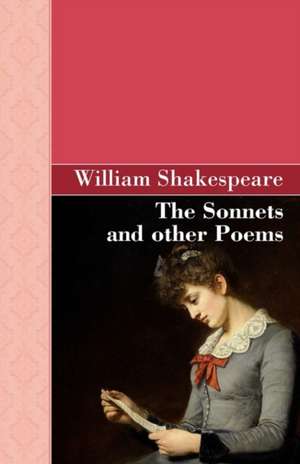



![The Songs of Shakspere, Selected from His Poems and Plays [by J.B.].](https://i2.books-express.ro/bt/9780649708673/the-songs-of-shakspere-selected-from-his-poems-and-plays-by-j-b.jpg)



